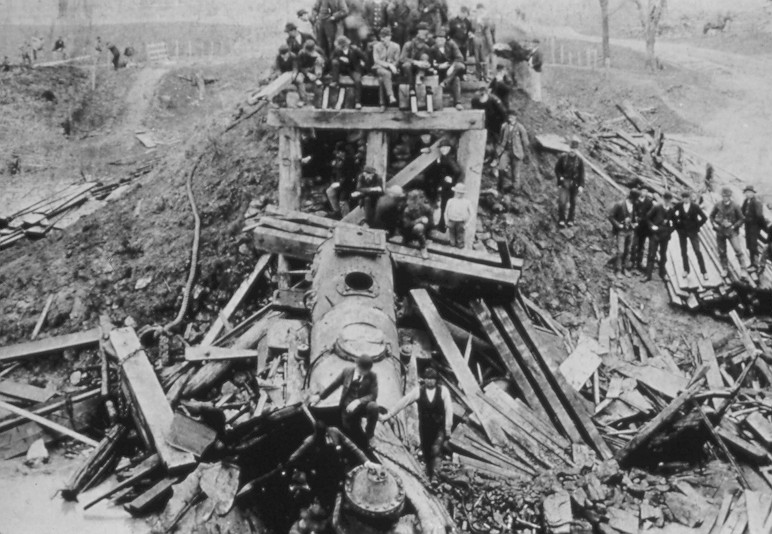 The man in charge of overseeing the election of board delegates to Pacifica radio’s five Local Station Boards (LSBs) has asked the network to end these contests once and for all.
The man in charge of overseeing the election of board delegates to Pacifica radio’s five Local Station Boards (LSBs) has asked the network to end these contests once and for all.
“Almost everybody agrees that the elections at Pacifica are too costly, time consuming, factionalized and factionalizing,” concludes Pacifica National Elections Supervisor Terry Bouricius in his final report on the latest round of delegate races, which finished this month. “They interfere with listener-preferred programming, and are exceedingly difficult for staff to administer well. The proportional voting method (STV) can generate LSBs that fairly reflect the diversity of the members, but only if most members take the time to learn about the huge number of candidates, and actually cast their ballots. This has never been the case. In short, Pacifica is not well served by its election process.”
Two out of every three years Pacifica subscribers and staff at the five Pacifica stations are charged with electing “delegates” to these bodies of roughly two dozen people. They deal with management hires and budgets, and appoint representatives to the Pacifica national governing board. I’m definitely in the “almost everybody agrees” camp. By my calculation, these elected boards have cost the organization almost $3 million since the onset of “democracy” at Pacifica about a decade ago. They draw to their ranks an endless supply of self-appointed programming czars who reliably polarize the network in their bids to influence or control air time at one or more of the stations. A not inconsiderable portion of board activity at Pacifica consists of activists trying to get rid of each other via direct expulsions, lawsuits, recall campaigns, and cleverly worded by-laws changes designed to purge opponents.
On top of all that, most of Pacifica’s approximately 71,000 subscriber “voters” don’t even participate in these debacles. As Bouricius’ document reveals, at WBAI in New York City, a pathetic 10.3 percent of the station’s listener subscribers participated in the last event, just barely passing the ten percent “quorum” necessary to certify the result. KPFA in Berkeley was the big success story. There a whopping 16.7 percent of listener-subscribers voted. In other words, over 83 percent did not. Meanwhile KPFK in Los Angeles failed quorum, despite several time extensions. The total number of valid ballots counted was around 300 less than the quorum threshold of 1,866 out of 18,651 extant listener subscribers.
Goodness knows how much this latest debacle cost. The last time Pacifica had an election year, the board cost the organization $378,023.
Here’s an excerpt from the Bouricius report:
The election process at Pacifica is extremely expensive and extremely divisive, yet does an inadequate job of tapping the incredible skills and knowledge distributed throughout the membership. Many of the most competent and cooperative members simply won’t enter the adversarial fray of Pacifica elections. While there are many valuable and skilled members elected to the various LSBs, the nomination and election process acts like a pre-filter that favors self-important ego-driven individuals, skilled at waging battles, while discouraging many mild-mannered and cooperative members of the Foundation who might make excellent board members. Of course some excellent board members get elected, but the election process itself does not assure this. The election process may actually prevent the selection of an optimal set of LSB members. Because of the factionalized nature of adversarial elections, elected members often demonize, or anticipate the worst from others who were elected from competing slates, rather than genuinely working together. This is not a character flaw, but rather an almost inevitable side-effect of competitive elections.
Because mass elections inherently limit the impact of each individual’s vote, there is not sufficient motivation for most members to vote, or if they do vote, to learn much about the candidates first. Essentially we have a sub-set (typically a bit over 10%) of members who are not necessarily representative of members generally, and who are generally poorly informed about the candidates choosing between competing slates made up of some excellent candidates mixed with ego-driven zealots and deferential followers, while draining away the Foundation’s financial resources, and burdening air-time with election programming of little interest to most members, that may even drive down listenership.
Bottom line: “Elections are simply not the appropriate democratic tool for Pacifica to use to select Local Station Boards from among its diverse listener membership,” the report’s overall assessment concludes.
Bouricius does offer an interesting counter proposal—a process he calls “Sortition.” A large Pacifica Listener Council would be drawn by lot, and the resultant councilors would for all practical purposes “hire” a board. “Rather than having the skills appropriate for serving on a Local Station Board themselves, [the Council] would be statistically representative of the membership, and be given the time and incentives to recruit, learn about to, and select the best possible board members.”
The idea, contained in Appendix H of the document (page 84), is definitely worth a read.
Further reading: 2012 Pacifica Local Station Board Delegate Elections Final Report


